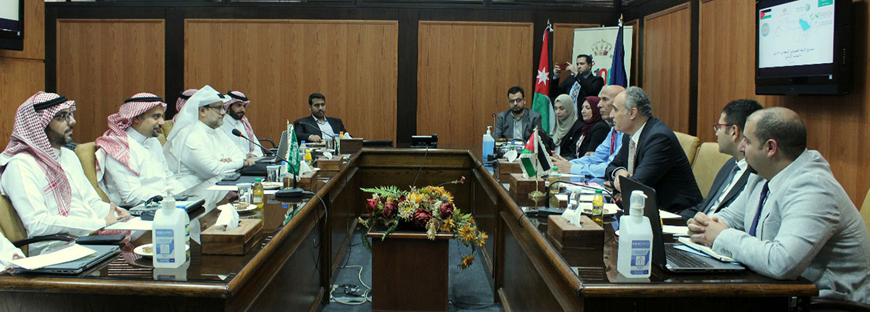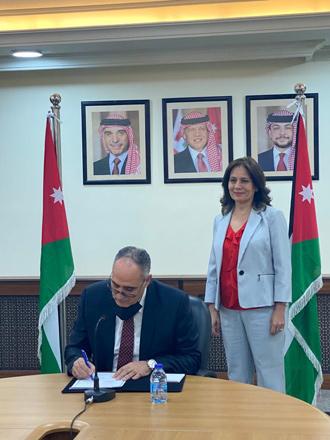You are here
Jordan, Saudi agree on feasibility of connecting power grids
By JT - Jan 29,2019 - Last updated at Jan 29,2019
AMMAN — A Jordanian-Saudi technical committee has approved the feasibility of connecting the electric power grids of the two countries through a 170km transmission line linking eastern Amman and Saudi Arabia’s Qurayyat.
National Electric Power Company (NEPCO) Director General Amjad Rawashdeh said in a press conference on Monday that the two sides, during meetings held in Amman last week, drew a preliminary timetable for implementing the project, which is expected to be operational in 2022.
Studies show that the Saudi consumption of electricity during daytime, especially in the summer, is higher than during the evening hours, Rawashdeh said, while in Jordan the opposite is the case, and in light of the introduction of solar power stations to the Kingdom’s grid, electricity consumption would exceed that of Saudi Arabia during the early hours, particularly during winter.
Accordingly, exporting electricity to Saudi Arabia during the daytime is possible and would allow future and contracted renewable energy power stations to be established, provided that electrical power would be imported from Saudi Arabia after sunset, according to a NEPCO statement.
The projected exchange of electric power will not hinder either country’s ability to meet its own power needs at any time of the day, the director general added, but would achieve optimal exploitation of electricity generation resources in the two kingdoms.
Rawashdeh said that technical and economic feasibility studies for the planned power link revealed a complementary relation between the two grids, expecting the joint project to open the door for establishing a joint Arab electricity market that links Arab Gulf countries, Jordan, Egypt, Palestine, Syria and Iraq.
The connection would reduce power production costs and reflect consumers’ electricity bills in both countries, Rawashdeh said, adding that this is expected to have a positive impact on various sectors.
Rawashdeh also noted that the Jordanian-Saudi electric connection will increase the networks’ reliability, especially the Jordanian grid’s, as it is the smaller in terms of size and capacity.
The link would also minimise the risks of sudden blackouts in generating units or the fluctuations in renewable power stations, which are affected by weather conditions.
At the end of last year, Jordan signed another agreement with the Iraqi government that would see the Kingdom’s electrical grid connected to Iraq’s as well.
Related Articles
AMMAN — Jordan and Saudi Arabia on Tuesday discussed three agreements regarding the electric connection between the two countries, expected
AMMAN — Jordan and Iraq on Sunday signed a contract to connect the electric power grids of the two countries and sell electricity mutually,
AMMAN — Jordan and Saudi Arabia on Sunday signed a memorandum of understanding (MoU) to lay out the frame work of joint cooperation to conne


















